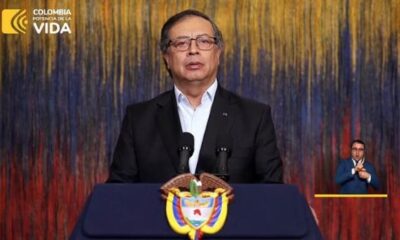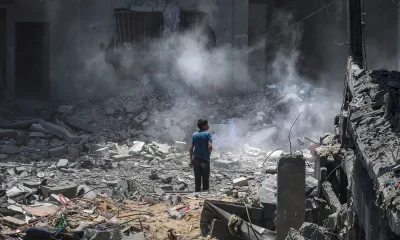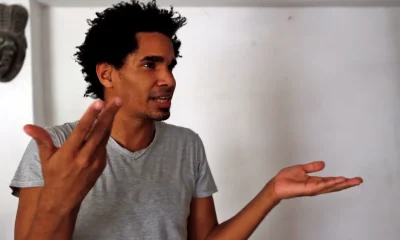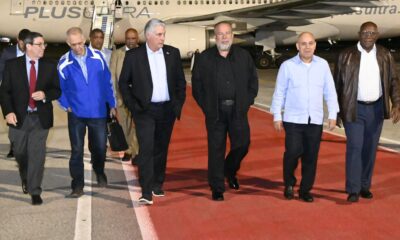International
Cuba blames the United States for the instability in the delivery of subsidized food
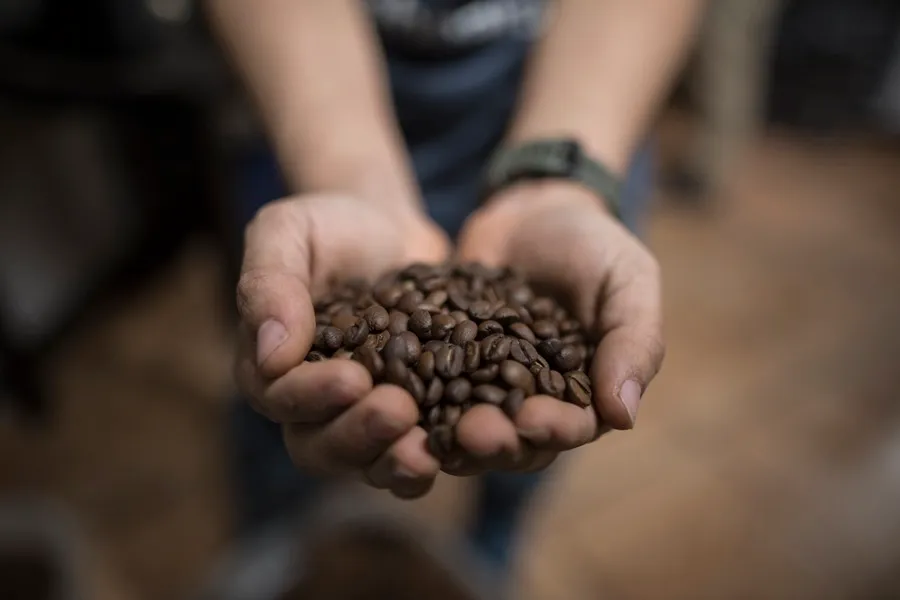
The president of Cuba, Miguel Díaz-Canel, blamed on Thursday the “regrowth” of the economic embargo of the United States for the “difficult situation” in the delivery of the subsidized products through the ration card.
The president dedicated the second broadcast of the program ‘Desde la Presidencia’ – broadcast on YouTube – to the “difficulties” in acquiring from abroad the products that are distributed in the so-called supply book, in force for more than 60 years on the island.
According to Díaz-Canel, the island government spends about 230 million dollars a month to guarantee the products – rice, coffee, sugar, beans, among others – and distribute them in the more than 12,000 wineries (local state shops located in the neighborhoods).
“It is a titanic task that the country does,” said Díaz-Canel, accompanied by the head of Internal Trade, Betsy Díaz, and the first deputy minister of Foreign Trade and Foreign Investment, Oscar Pérez-Oliva Fraga.
Díaz-Canel acknowledged that people’s opinion about the primer is “very critical and very negative,” especially due to the delays in deliveries and the decrease in quantities.
In the last 20 years, the rations that have decreased the most have been coffee and sugar, both domestically produced, according to a study recently carried out by EFE.
In this regard, Díaz stated that “the last two years have been very complex for distribution” due to “the lack of financing to pay the freight with the loads and the lack of fuel to distribute the products once they are in Cuban port.”
In this regard, the first Deputy Minister of Foreign Trade commented that “the inclusion of Cuba in the list of states that sponsors terrorism – prepared by the U.S. Department of State – has been a strong blow to the country’s finances.”
Cuba has been plunged into a severe crisis for four years, which translates into a shortage of basic products, frequent blackouts and strong inflation, in conjunction with the pandemic, the tightening of US sanctions and errors in national economic policy.
The Caribbean country spends $2 billion annually on the import of food.
Recently, Cuba formally requested milk powder from the UN World Food Program for the first time to continue subsidizing this product to children under seven years of age, according to EFE.
The Cuban authorities have assumed in recent weeks problems to produce the subsidized bread from the basic basket due to lack of imported flour.
The shortage of food was one of the triggers of the massive anti-government protests of July 11, 2021, the largest in decades, and the most recent of March 17 of this year in several cities of the country
International
U.S. Senate Rejects Budget, Bringing Government Closer to Shutdown Amid DHS Dispute

The U.S. Senate voted on Thursday against a budget proposal in a move aimed at pressuring changes at the Department of Homeland Security (DHS), following the killing of two civilians during a deployment of immigration agents in Minneapolis.
All Senate Democrats and seven Republican lawmakers voted against the bill, which requires 60 votes to advance, pushing the country closer to a partial government shutdown that would cut funding for several agencies, including the Pentagon and the Department of Health.
The rejection came as Senate leaders and the White House continue negotiations on a separate funding package for DHS that would allow reforms to the agency. Proposed measures include banning Immigration and Customs Enforcement (ICE) agents from wearing face coverings and requiring them to use body-worn cameras during operations.
The vote took place just hours after President Donald Trump said he was “close” to reaching an agreement with Democrats and did not believe the federal government would face another shutdown, following last year’s record stoppage.
“I don’t think the Democrats want a shutdown either, so we’ll work in a bipartisan way to avoid it. Hopefully, there will be no government shutdown. We’re working on that right now,” Trump said during a Cabinet meeting at the White House.
International
Trump Says Putin Agreed to One-Week Halt in Attacks on Ukraine Amid Extreme Cold

U.S. President Donald Trump said on Thursday that he secured a commitment from Russian President Vladimir Putinto halt attacks against Ukraine for one week, citing extreme weather conditions affecting the region.
“Because of the extreme cold (…) I personally asked Putin not to attack Kyiv or other cities and towns for a week. And he agreed. He was very pleasant,” Trump said during a Cabinet meeting broadcast by the White House.
Trump acknowledged that several advisers had questioned the decision to make the call.
“A lot of people told me not to waste the call because they wouldn’t agree. And he accepted. And we’re very happy they did, because they don’t need missiles hitting their towns and cities,” the president said.
According to Trump, Ukrainian authorities reacted with surprise to the announcement but welcomed the possibility of a temporary ceasefire.
“It’s extraordinarily cold, record cold (…) They say they’ve never experienced cold like this,” he added.
Ukrainian President Volodymyr Zelensky later commented on the announcement, expressing hope that the agreement would be honored.
International
Storm Kristin Kills Five in Portugal, Leaves Nearly 500,000 Without Power

Storm Kristin, which battered Portugal with heavy rain and strong winds early Wednesday, has left at least five people dead, while nearly half a million residents remained without electricity as of Thursday, according to updated figures from authorities.
The revised death toll was confirmed to AFP by a spokesperson for the National Emergency and Civil Protection Authority (ANPEC). On Wednesday, the agency had reported four fatalities.
Meanwhile, E-Redes, the country’s electricity distribution network operator, said that around 450,000 customers were still without power, particularly in central Portugal.
Emergency services responded to approximately 1,500 incidents between midnight and 8:00 a.m. local time on Wednesday, as the storm caused widespread disruptions.
The Portuguese government described Kristin as an “extreme weather event” that inflicted significant damage across several regions of the country. At the height of the storm, as many as 850,000 households and institutions lost electricity during the early hours of Wednesday.
Several municipalities ordered the closure of schools, many of which remained shut on Thursday due to ongoing adverse conditions.
Ricardo Costa, regional deputy commander of the Leiria Fire Brigade, said residents continue to seek assistance as rainfall persists.
“Even though the rain is not extremely intense, it is causing extensive damage to homes,” he noted.
In Figueira da Foz, a coastal city in central Portugal, strong winds toppled a giant Ferris wheel, underscoring the severity of the storm.
-

 Central America5 days ago
Central America5 days agoGuatemala seizes over a ton of cocaine hidden in flour at Pacific port
-

 Central America3 days ago
Central America3 days agoGuatemala Police Arrest Prison Guard Caught in the Act of Extortion
-

 Central America3 days ago
Central America3 days agoHonduras swears in conservative president Asfura after disputed election
-

 International4 days ago
International4 days agoHistoric snowstorm paralyzes Toronto after 60 centimeters of snow
-

 Central America3 days ago
Central America3 days agoBukele leads public trust rankings as UCA survey highlights gains in security
-

 International2 days ago
International2 days agoFootball Fan Killed in Clashes After Colombian League Match
-

 International4 days ago
International4 days agoSpain’s irregular migrant population rises to 840,000, study finds
-

 Central America2 days ago
Central America2 days agoGuatemala President Says Starlink Terminal Found Inside Prison
-

 International3 days ago
International3 days agoDoomsday clock moves to 85 seconds before midnight amid rising global risks
-

 International3 days ago
International3 days agoWinter Storm Fern Leaves 30 Dead and Over One Million Without Power Across the U.S.
-

 Sin categoría3 days ago
Sin categoría3 days agoEight Killed in Series of Armed Attacks in Ecuador’s Manabí Province
-

 International3 days ago
International3 days agoSpain approves plan to regularize up to 500,000 migrants in Historic Shift
-

 International1 day ago
International1 day agoU.S. Senate Rejects Budget, Bringing Government Closer to Shutdown Amid DHS Dispute
-

 International5 days ago
International5 days agoRights group says nearly 6,000 killed in Iran protest crackdown
-

 Sin categoría3 days ago
Sin categoría3 days agoEl Salvador Launches Fourth Year of Ocean Mission to Protect Marine Ecosystems
-

 International2 days ago
International2 days agoRubio Says U.S. Could Participate in Follow-Up Russia-Ukraine Talks
-

 International2 days ago
International2 days agoMissing Spanish Sailor Rescued After 11 Days Adrift in Mediterranean
-

 Central America8 hours ago
Central America8 hours agoPanama Supreme Court Strikes Down Panama Ports Concession as Unconstitutional
-

 International5 days ago
International5 days agoVenezuela frees at least 80 political prisoners, NGO says
-

 International5 days ago
International5 days agoEU launches new probe into X over AI-generated fake nude images
-

 International1 day ago
International1 day agoStorm Kristin Kills Five in Portugal, Leaves Nearly 500,000 Without Power
-

 Central America8 hours ago
Central America8 hours agoU.S. and Guatemala Sign Trade Deal Granting Zero Tariffs to Most Exports
-

 International1 day ago
International1 day agoTrump Says Putin Agreed to One-Week Halt in Attacks on Ukraine Amid Extreme Cold
-

 International1 day ago
International1 day agoMan Arrested After Vehicle Crashes Into Jewish Institution in Brooklyn
-

 International5 days ago
International5 days agoFrance debates ban on social media for children under 15
-

 International5 days ago
International5 days agoSevere winter storm grips U.S., leaves multiple dead as extreme cold persists

























